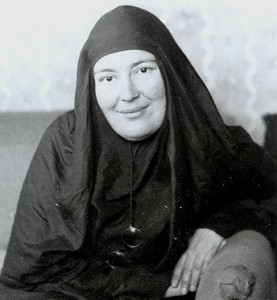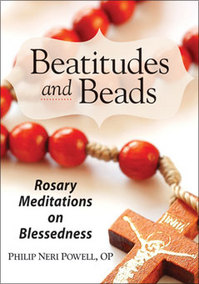I am asked all sorts of questions about the Catholic Church, her practices and beliefs. Recently asked: “Can I ask rightly ask for material things from God? I do not want to be self-centered.” What do Christians mean when they say they are blessed?
Divine revelation will speak about the superiority of the spiritual over material. Our poverty is one dependence on God for everything recognizing that we do not make ourselves nor do we sustain ourselves. Everything is a gift. In the Old Testament we read that “The LORD has blessed my master [Abraham] so abundantly that he has become wealthy; he has given him flocks and herds, silver and gold, male and female slaves, and camels and donkeys” (Genesis 24:35). We know that Jesus teaches: “Do not store up for yourselves treasures on earth, where moth and decay destroy, and thieves break in and steal. But store up treasures in heaven, where neither moth nor decay destroys, nor thieves break in and steal” (Matthew 6: 19-20)
If I understand what Our Lord is saying, I can have material things but I should not make an idol of these things. Long has Judaism and Christianity taught that material goods as blessings from God AND a proper use of these goods is required to remain in right-relationship with God. But the question of being blessed by God is understood at a far greater level –that of the beatitudes. Recently, I have been thinking of meaning of my person in relationship to the beatitudes. Saint Matthew pulls out the blessings: the kingdom of heaven, righteousness, peace, physical and spiritual sustenance and so forth. All these blessings are for the Kingdom of God, that is, for the good of the Church. We the know etymology of happiness, from Latin, is beatitudo, hence we have “Beatitudes.” Yet the question of what is means for my person necessarily surfaces. For my “I” to be true, that is, to be fully alive in Christ Jesus, I need to live in a proper relationship with the other, with God and with creation.
Jesus has a key desire for us: our happiness in this world lived in holy freedom. What comes to mind is the Principle and Foundation of the Spiritual Exercises of Loyola where we are reminded that we have to develop a discerned indifference to the material world leaving all things in the hands of God: life, death, sickness, health, wealth and poverty –all is in Providence. Loyola wants us to keep in mind that being free is to rely on God. As creatures we have reasonable concerns for a material well-being that is also the concern for the Lord. The material world is part of the make-up of the Incarnation. In all things we need to adopt an absolute priority for Christ, as Blessed John Duns Scotus calls it.
Jesus is against the excessive, idolization of the material world. For a fuller picture read Matthew 6.
From what is revealed in Scripture we need to move to Aquinas who teaches that while it is not correct to desire material things principally because they are not about ultimate destiny, we can ask God to grant us material things “as helps whereby we are assisted in tending towards beatitude,” since they are “means of supporting the life of the body, and are of service to us as instruments in performing acts of virtue” (STh. I-II q. 83a.6).
Catholics, then, can in good conscience ask for the material blessings if they indeed the right use of them for the upbuilding of the Kingdom. Any other reason needs to be atoned for in the confessional.
 Today, the 71st anniversary of the transitus (the death) of Saint Maria Skobtsova of Paris (1891-1945). She was Latvian by birth. Saint Maria is an Orthodox nun who was killed in the Ravensbrück concentration camp, along with her son, Yuri. Saint Maria Skobtsova is known as the Orthodox Dorothy Day, or the Orthodox Woman of the Beatitudes.
Today, the 71st anniversary of the transitus (the death) of Saint Maria Skobtsova of Paris (1891-1945). She was Latvian by birth. Saint Maria is an Orthodox nun who was killed in the Ravensbrück concentration camp, along with her son, Yuri. Saint Maria Skobtsova is known as the Orthodox Dorothy Day, or the Orthodox Woman of the Beatitudes.